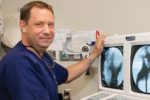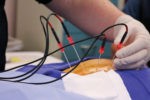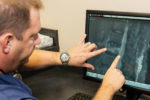Kansas City Surgeon Offers New Lumbar Total Disc Replacement
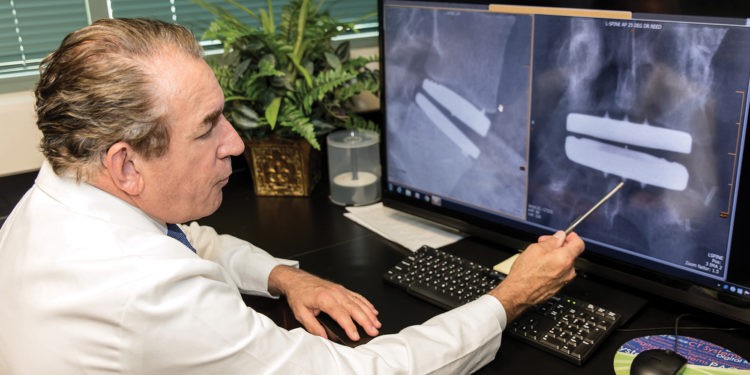
Dr. William O. Reed of Blue Valley Hospital is leading the movement; the movement away from spinal fusion surgery in favor of a motion preserving alternative to address Kansas Citians’ chronic low back pain.
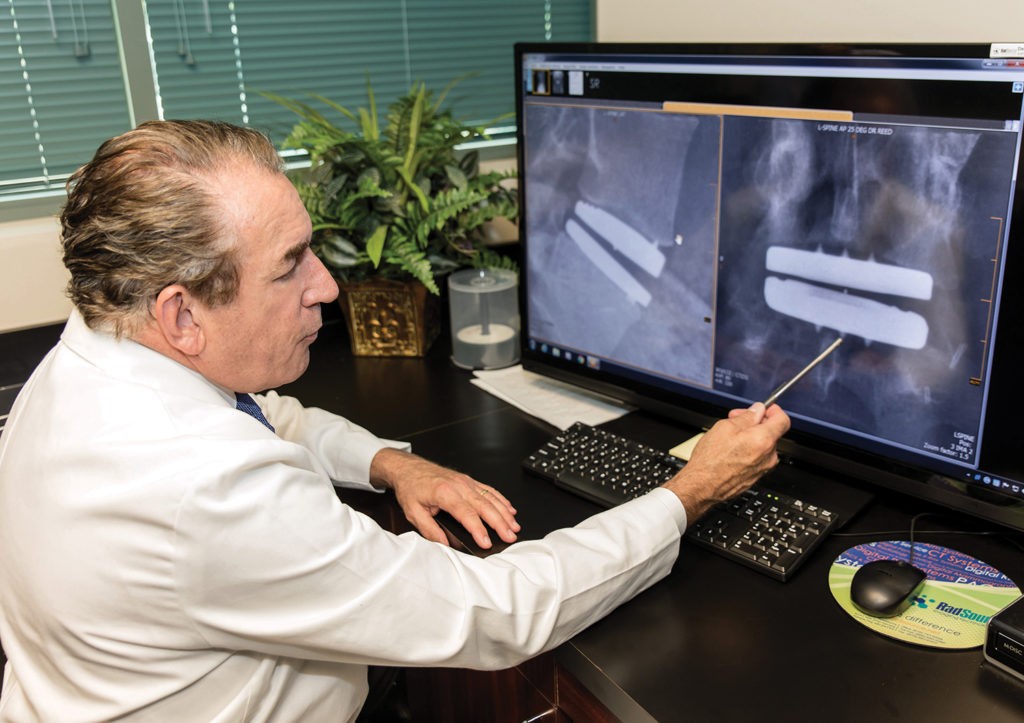
Dr. Reed has implanted the most activL Artificial Discs nationally since the disc entered the U.S. market in late 2015.
Thousands of Kansas Citians are impacted each year by chronic low back pain. Back pain is one of the biggest reasons individuals miss work in the U.S., second only to the common cold. While most back pain is isolated and resolves after several days, weeks or months, there are some people whose pain becomes chronic. Those who have suffered from chronic low back pain, otherwise known as degenerative disc disease, understand that when all the non-surgical treatment options like physical therapy and injections have been exhausted, sometimes you are left with no choice but to go under the surgical knife.
Until recently, back pain sufferers were limited to receiving a spinal fusion, a procedure which significantly alters the mechanics of the low back and may result in more rapid progression of their degenerative disc disease. But Dr. William O. Reed of Blue Valley Hospital is leading the movement – the movement away from fusion surgeries that is. Dr. Reed is among some of the first surgeons in the country seeking to offer patients an alternative to fusion with artificial disc replacement.
“My focus is on true minimally invasive surgery and motion preserving spine surgery to avoid fusion and its consequences,” said Dr. William O. Reed.
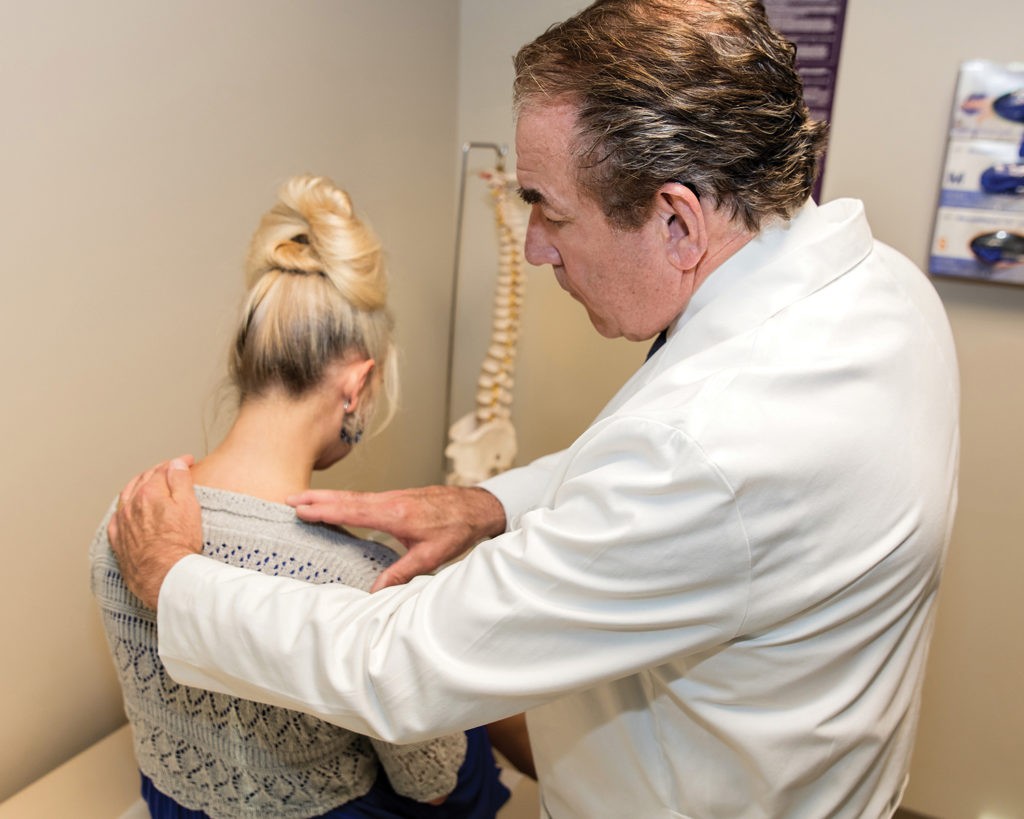
At Blue Valley Hospital in Overland Park, Kansas, Dr. Reed is a spine surgeon who specializes in orthopaedic and minimally invasive spine surgery. Dr. Reed and his team of experts understand the key to a successful outcome of any treatment or procedure is helping patients fully understand all their options while also giving them a sense of comfort knowing they are placing their health in the best hands.
For chronic low back pain sufferers, the options are expanding. “I offer artificial disc replacement to my patients because it has become the most studied spine procedure and the evidence is overwhelming,” said Dr. Reed. “I am surprised that so many of my surgeon peers have not taken the initiative to understand the benefits that artificial disc replacement can bring to certain patients,” he continued.
“By fusing younger, active patients you are basically signing them up for a downward cascade of more operations over the course of their life. Not every patient is a candidate for a more natural disc replacement but my practice has become more about exploring the option to maintain motion first, before resorting to fusion.”
Dr. Reed earned a dual B.A. degree in Chemistry and Biology from the University of Rochester; post-graduate Anatomy study at Washington University; and completed his Medical Doctorate Degree at the University of Missouri-Columbia. Additionally, he has acquired his MBA from Olin School of Business – Washington University.
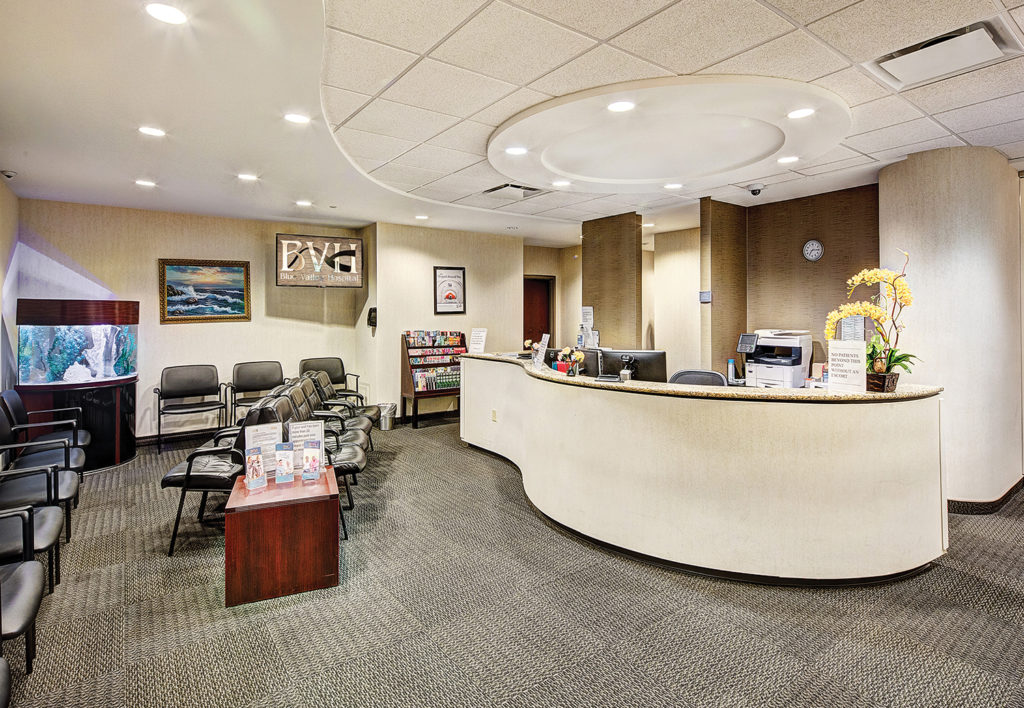
Blue Valley Hospital offers state of the art patient care in a comfortable setting.
He completed his general surgery residency at the University of Missouri and his orthopedics residency at Duke University. He is board certified with the American Board of Orthopaedic Surgery and additionally holds the ABOS Subspecialty Certificate in Surgery of the Hand. He trained specifically in Orthopaedic Spine and Upper Extremity surgery at Duke University Medical Center. Upon completing medical school, Dr. Reed served with the United States Air Force Reserve, achieving the rank of Major and served as Orthopaedist and Flight Surgeon before being honorably discharged in 2002.
Dr. Reed now continues to build upon his stellar credentials, offering artificial disc replacement and other surgical options for back and neck pain at Blue Valley Hospital in Overland Park, Kansas. Blue Valley Hospital opened in 2010 and is one of the regions first micro-hospitals with experts providing care in specialties including pain management, orthopaedics, spine care, general surgery, podiatry, and bariatric surgery in Kansas City. Dr. Reed has been instrumental in leading Blue Valley’s expanded spine program and motion preservation center.
Lumbar artificial disc replacement is a motion preservation technique designed to replace a painful disc, decompressing nerve roots while simultaneously maintaining the natural movement of the spine. This type of procedure can help many patients with chronic back and leg pain associated with disc degeneration, stenosis or disc herniation.
Artificial disc replacement is emerging as an alternative to the standard protocol of spinal fusion to treat severe disc problems and is indicated for individuals suffering from degenerative disc disease (DDD). This is a condition that can occur in the lower back or neck, leading to appreciable pain. As one ages, the discs can dehydrate and become less dense and more brittle. As they degenerate, they will flatten out, developing cracks in the outer layer. Removing the discs alone is not enough for some patients. For those who do not favorably respond to non-surgical interventions (such as pain medication, physical therapy, epidurals and nerve root or trigger point corticosteroid injections), the primary standard of care for this issue over the years has been spinal fusion, which immobilizes the disc. Fusion stops all motion and adjacent level disease has frequently been the outcome. When the FDA approved the first lumbar disc replacement in 2004, this new procedure gained in popularity to try to minimize this “fusion disease”.
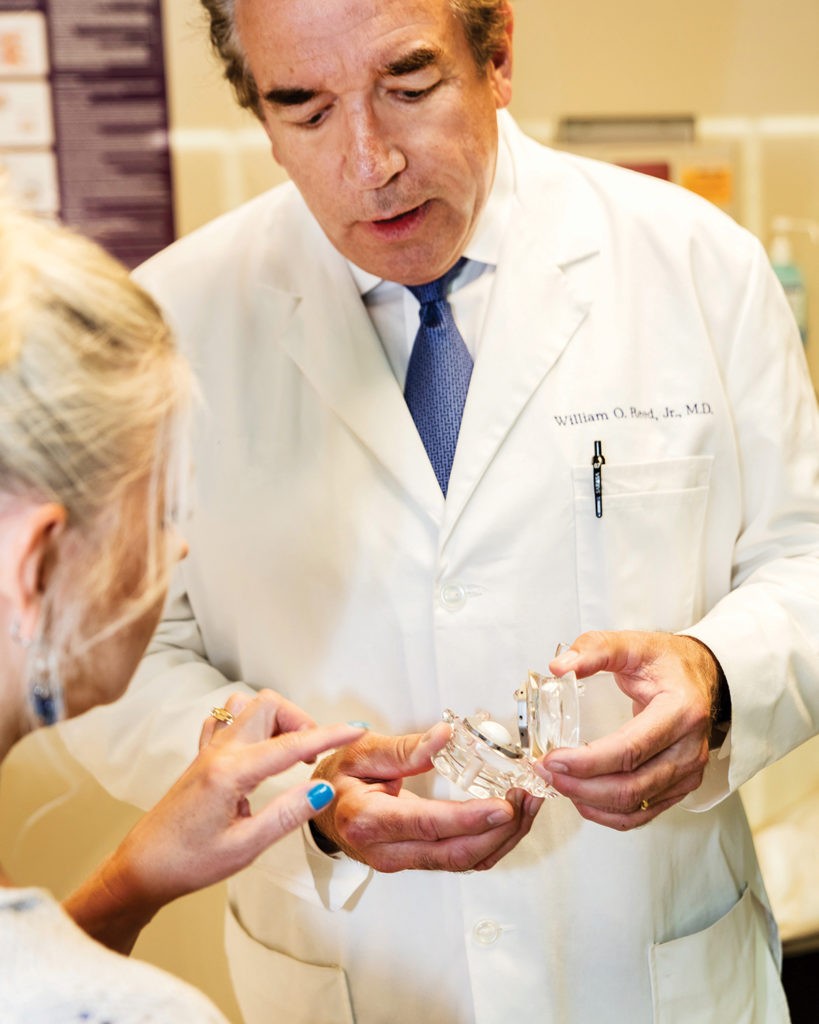
Dr. Reed explained, now that cervical and lumbar total disc replacements are FDA-approved, studies and physician-patient collaboration are taking place to determine where expanded indications in lieu of fusions may prove additionally beneficial. In cervical spine cases, Dr. Reed uses a smaller version of the implant, given results proven superior to fusion. Studies have also shown that patients who undergo artificial disc replacement enjoy a speedier recovery and return to normal activities than those who undergo a spinal fusion.
Is this a cure all? No, but disc replacement could be an appropriate alternative for someone who has been told he or she needs a spinal fusion. The ideal candidate for this type of procedure may present with disabling back or leg pain due to disc herniation or degenerative discs and they just cannot perform daily activities like they used to. However, if the patient has an infection or excessive instability, disc replacement cannot be done.
Dr. Reed explains the lumbar disc replacement procedure is initiated through the stomach, which more readily accommodates the replacement disc and avoids the sensitive spinal nerves
“I do the exposure myself through a 1 ½ inch incision using a muscle sparing approach, which is relatively less painful than posterior fusion surgery,” he explained. “While this is technically considered an out-patient procedure, most patients do stay overnight and then leave early in the morning.”
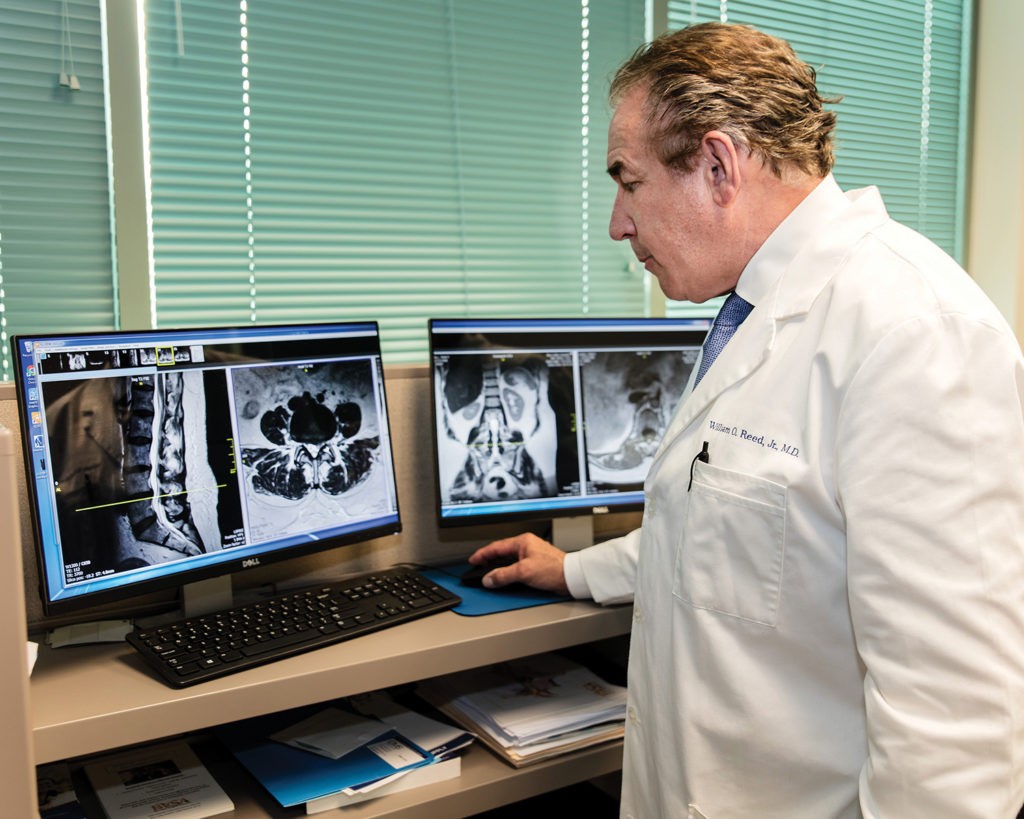
Dr. Reed makes time to explain radiographic findings with his patient.
After this particular surgery – and unlike the prolonged months of recovery associated with fusion – the patient will be able to resume movement the moment the disc is inserted, and full activity is immediately allowed. Further, studies show up to 30% of fusion patients require surgery at a later date as opposed to the motion preservation technique, which results in only nine or ten percent requiring surgery at a later point in time.
“Patients usually find post-operative pain relief on a very short time line, as in days compared to weeks, and that is a dramatic and heartwarming change for me to see,” he reflected.
As for the rigors of follow-up care, the course of action is relatively minimal and requires an x-ray every year or two, in addition to one immediately after surgery, of course. Dr. Reed asserted that, like successful artificial knee and hip replacements, with the disc procedure it is extremely rare for any revision to be necessary once the procedure is completed. Even with the cervical spine procedure, there are no sutures and the patient can immediately twist his or her head around, feeling as if they can once again do anything.
Dr. Reed noted hardly anyone is spared an episode of lumbar pain at some point in life, and fortunately, primary care, spine and pain management doctors are successful in resolving most of these cases.
“When conservative treatments fail, patients are frequently referred to me for surgical evaluation and to determine if they will benefit from it,” he emphasized.
While the FDA ensures the implant is safe and effective as studied, the doctors ultimately, through their own due diligence and experience, determine where it really works well, doing so in a considerate and careful manner with their patients.
“The FDA approves implants and issues guidelines for use,” noted Dr. Reed. “How and when it’s ultimately used is a patient-physician process, taking individual patient needs into account. As a teacher, I believe a fully educated and informed patient about their diagnosis and all treatment options will make the right decision for themselves, and that is always my goal.”
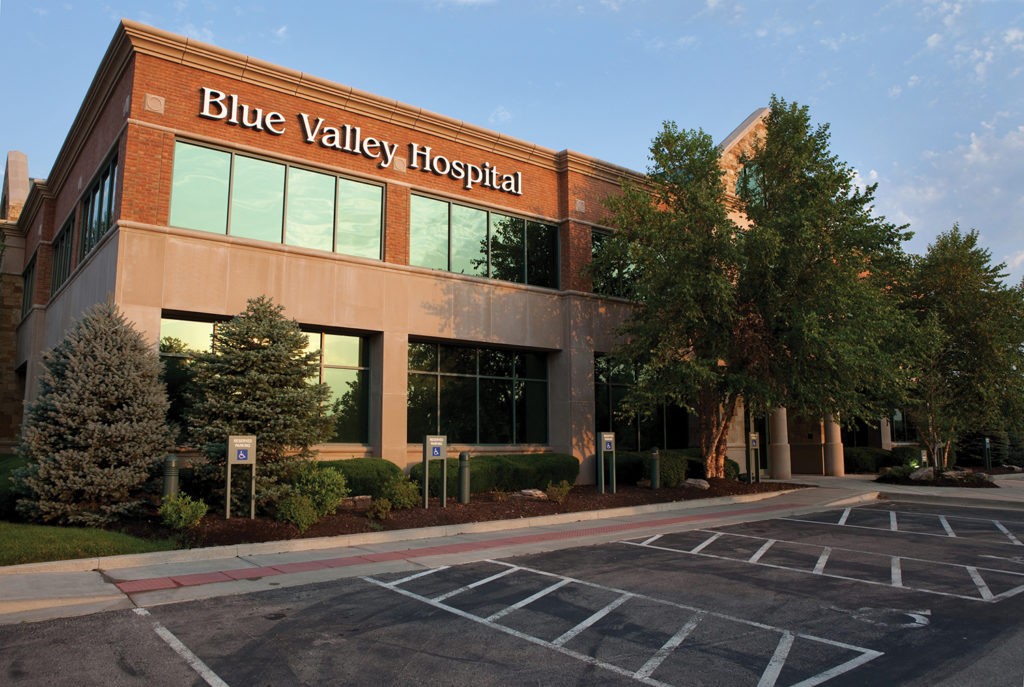
Dr. Reed not only practices artificial disc replacement, but he dedicates time to training other spine surgeons on the important nuances to adopting artificial disc replacement. “I believe educating other surgeons that there are new alternatives to fusions is important,” said Dr. Reed. “It is easy once you get out into practice to become stale and not fully investigate new technologies and procedures out there that are offering relief to patients. I believe that training more surgeons on these procedures is vitally important to improving patients’ access to differentiated procedures, and I learn every time I teach too.”
Dr. Reed’s specialty can accurately be expressed with a litany of medical terminology, but in layman’s terms, he essentially specializes in relieving pain and restoring mobility and has been continually recognized as a pioneer with respect to endoscopic spine surgery techniques indicated for herniated lumbar discs performed on an outpatient basis. His work also includes quality care for upper extremity, hand, shoulder, cervical, and thoracic conditions treated through endoscopic, thoracoscopic, microscopic, and minimally invasive procedures.
“By bringing upper extremity micro- and endoscopic techniques to the spine, I have been able to get a jump on others. I’ve been teaching worldwide for most of my career and have also embraced opportunities to become involved in research to better my patients’ care.”
For more information on artificial disc replacement or Dr. William O. Reed, Jr., visit bluevalleysurgical.com or call 913.378.1365.

